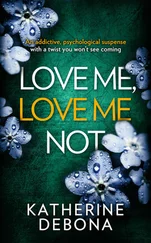Mel, who’d been admiring the pavement, walked off without saying goodbye. Helen got the impression she’d heard Louisa’s pronouncement before and knew she’d reached the end of it. She trudged along Dickensweg, shoulders hunched over the pushchair. An elderly man came round the corner, tipped his felt hat to her and went towards the door of number 2.
“Manfred, come and meet your new neighbour,” Louisa called out to him.
If the man was irritated at being summoned, he didn’t show it. He walked towards them. Although he was tall, he stooped so he didn’t tower over Helen the way many German men did. He lifted his hat in greeting, revealing a smattering of liver spots at his hairline. How old was he? Seventy? Nearly eighty? He gave her a firm handshake.
“ Angenehm . Pleased to meet you,” he said.
“Where have you been this bright and early?” Louisa asked.
“Every morning I go for a healthy walk along the river.” As he spoke in his thick guttural accent, he gave off the tinny fumes of alcohol.
“I’m glad you’re keeping busy. Do let me know if I can do anything for you. You’re always welcome here.”
Welcome in his own country? What a cheek. He must have caught Helen raising her eyebrows but his face remained impassive, his own heavy eyebrows and thick moustache doing much to conceal his expression. When Louisa turned away from him, he took this as his dismissal and headed back up the street.
“He does his best, poor chap, a bit of a drinker,” Louisa said. “Don’t worry, he can’t understand; his English is pretty ropey. Anyway, must dash if I’m to fit in five miles before lunch. Let me know when you’re ready to join me. Remember what I said about the weight.” She climbed back into her car.
Helen was sure Manfred had hesitated on his porch, listening. His English sounded pretty competent to her.
By noon she’d turned over the front bed. The street was silent. Sun glinted on the shutters at the Howards’ house, reflecting their yellowness onto an open upstairs window at number 8. She shuddered, imagining the same colour might be projected on her own house. A crow cawed and swooped at the window. It clung onto the bottom of the frame, claws scrambling and scraping, wings flapping. Its beak banged against the glass, fighting with its own image. Pulse racing, Helen dropped her spade and backed to her front door. The battling bird lost its footing and flew off. She went back to work but, as she dug, kept looking around, unable to shake off the feeling that someone was watching, standing over her.
She was glad when it was three o’clock and busy in the street. Mothers, bikes, and children used the path by Louisa’s house to cut through to the next cul-de-sac. Also striding up the road without the pushchair, at a pace which Helen previously assumed wasn’t possible for her, was Mel. She turned up her path and didn’t acknowledge Helen.
As well as clearing the flower bed, Helen mowed the lawn and pulled out the weeds between the paving slabs. Her shirt stuck to her underarms and her back was stiff, but she was happy-knackered; a good day’s work. She sat on the step with a coffee as some teenage girls moved through Dickensweg towards the cut-through. They tapped into their mobile phones. When Chris’s sports car roared up, the girls flocked around it, all their texting forgotten.
“Have you decided yet, sir?” one said, flicking her greasy side fringe behind her ear.
Chris brushed his hand through his own thick, white hair. “I’m still working on the casting.”
“What are you looking for?” a tall, elegant girl asked. Helen thought she was stunning.
Apparently so did Chris. “Strong features like yours might work.”
The girl lost her poise as the compliment reduced her to a giggling teenager. The girls crowded closer and all talked at once. Chris fed them with non-committal but encouraging one-liners: I have to get the balance right; everyone has a chance; I’ll let you know when I screen test.
As he walked past Helen, he said: “We only have to do the back gardens, you know. School maintains the front between May and October. Another three weeks and they’d have done it for you.”
She stamped the mud out of her wellingtons before going indoors. Prick , she stamped, prick , prick , prick .
***
That night her sleep was fitful. But as well as Gary’s frantic tapping on the games controller through the left-hand wall, other noises invaded her dreams. The face at the Howards’ back fence morphed into the crow at the Stephens’s window. Her heart raced and she sat up in bed until the dream left her. When fully awake, she ached her way to the bathroom, her back and knees complaining about the gardening. The sounds from her dream were louder through the wall. She sat on the loo, releasing her stream slowly to keep it quiet. A nosy git like Chris Mowar would get off on hearing her pee. She heard a cough, a gasping, empty-out-the-lungs noise, and sloshing sounds. She pressed the flush; Chris was making too much noise next door to hear her.
Sunday, 2 May
Mel’s heart raced when the Barton couple at number 1 stepped out of their front door with their pack of yapping spaniels. But they turned left onto the main street, the dogs pulling against their leads to sniff the grass verge. Mel sighed with relief and knelt by Chris’s car to continue cleaning the tyres.
“ Guten Tag ,” a voice said, hard and guttural.
The young man was gaunt, scruffy-looking. He must have come from the copse that ran between their cul-de-sac and the one behind. She’d seen him once before, hanging around the edge of the wood, and she’d stayed indoors until he’d walked off. Now he squatted beside her and said something in German.
She didn’t know what he said, but she could smell him, taste him, tobacco. She leapt to her feet and felt her skin draw bone-white. Black dots floated in front of her eyes.
He stood up and put his hand in his jacket. She flinched. He pulled out a packet of cigarettes, opened it and offered her one. She stepped further away, her eyes darting between the man and the packet. She wished Chris was here; he’d know what to do.
The man shrugged, lit a cigarette for himself and pocketed the pack.
What now? She was working a cotton bud between her fingers. Her fists were tensed in front of her although she knew she’d be no match if he got nasty.
He pointed at the cotton bud. “You British won’t get your wheels dirty.”
A deep heat rose up her throat and she felt dizzy. Hearing him speak English made him more threatening.
He ran his fingernails over the bonnet, not quite hard enough to leave a scratch. “Expensive car,” he said. “You like driving it?”
He stared at her. The cold intensity of his eyes pushed her into answering. “It’s my husband’s car.”
But she wished she hadn’t; her response only made him ask something else. “Where does he drive you?” He drummed his fingers on the bonnet and turned them into a fist when she didn’t answer. “To the Rhineland?”
She watched his fist and shook her head.
“Or the Mosel or the Sauerland? Or the Black Forest or the Ahr Valley?” He fired off the place names like bullets.
She carried on shaking her head. When would this end?
“You must go somewhere.”
“I …” she faltered.
His eyes narrowed and he snarled: “Or is only England good enough?”
She flushed crimson, panic rising. The man looked unstable; she’d have to say something. How was she going to get away? She couldn’t run into the house; he’d see where she lived. Maybe if she’d accepted the cigarette, he’d have stalked back to the copse and left her alone. Her refusal had made him angry.
Читать дальше












